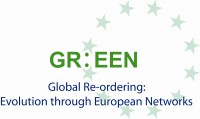The Arab Spring: US Policy and Lessons for Europe

The revolutions that began in 2011, sweeping across the Middle East and North Africa (MENA), raise serious questions about the EU’s role in the region and its purported goal of supporting democratisation. With European states having a considerable number economic and security interests in the region , the longstanding “conflict of interests” problem between supporting democracy and pursuing more immediate goals has been exacerbated. As such, the EU not only has to negotiate a changing landscape in the region but also negotiate between Members States competing and overlapping interests. This makes dealing with the “conflict of interests” problem in the region all the more important for the EU to take control of. Such a problematic is not of course unique to the EU, albeit if geography makes crises in the Southern Mediterranean more acutely felt on the shores of Europe, and the institutional structures of the EU pose their own particular impediments.
Indeed, the United States of America shares similar strategic concerns and democratic aspirations for the MENA region . However, research carried out as part of the GR:EEN project has shown that the US has been somewhat more efficient and better prepared for the Middle Eastern revolutions, which has been demonstrated in the American’s relatively more consistent and assertive policy response. This is not to say that the US response has not been without its problems, but it does provide insights that can advance the state of the art and provide lessons for the EU as it attempts to navigate the new strategic landscape. Moreover, during this period of fiscal responsibility, many of the new strategies adopted by the US would, if adopted by the EU, offer the ability to be more effectual and cost effective.

